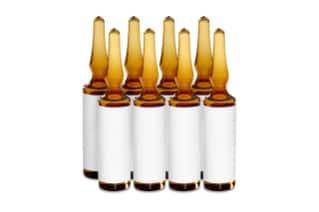
|
UNSPSC |
41116107 |
|
Product Type |
Application Kits |
Refractive Index Qualification Test Solution Kit
The Refractive Index Qualification Test Solution has been designed and intended for use with refractive index (RI) detectors. This kit is used to test the sensitivity, reproducibility, and linearity of the refractive index detector. Refractive index detectors are sometimes considered as the universal detector in liquid chromatography due to their ability to detect all compounds.
The Refractive Index Qualification Test Solution Kit has been designed to be used by a Waters Certified Engineer or by a user for the intent of a performance maintenance or qualification activity. The general Protocols in the use of this kit are available via the purchase of Waters qualification services or self-directed qualification training and license.
The Refractive Index Qualification Test Solution kit contains Caffeine at various concentrations ().1mg /ml, 0.2mg/ml, 0.5mg/ml, 1mg/ml & 10mg/ml. Similar to all equipment produced by Waters, these columns are manufactured in dedicated state-of-the-art Waters facilities. All Water manufacturing plants and facilities follow the strictest cGMP, ISO 9001 conditions. Each step of the manufacturing process is carefully monitored and controlled, so you can rest assured you have the highest quality equipment in your labs.
If you would like to review the additional Lab equipment produced by Waters, please browse through our catalog or our website from where you may shop for lab equipment as per the needs of your laboratory. From our website, you also have the option of connecting with one of our global client support service team members who can assist you with any general queries, guidance, or concerns you may have.
You may also want to check out the LCMS Certified Clear Glass 12 x 32 mm Screw Neck Vial, with Cap and Preslit PTFE/Silicone Septum, 2 mL Volume, 100/pk. All Waters LCMS Certified vials are produced following tightly controlled manufacturing processes and handling procedures. They are tested with mass spectrometers and come packaged with a certificate of analysis showing the reference and vial scan for the manufacturing lot.
What Is The Importance Of Sensitivity In Chromatography?
Sensitivity refers to the output signal per unit concentration or mass of a substance in the mobile phase as it enters the detector, such as the gradient of a linear calibration curve. It also represents the ratio of peak height to the concentration of the analyte within the peak for detectors sensitive to concentration, or the ratio of peak height to unit mass for mass-flow-sensitive detectors. To be considered a distinct performance characteristic, sensitivity should solely depend on the chemical measurement process and not on scale factors. The ability to detect or quantify an analyte is influenced by various instrumental and chemical factors.